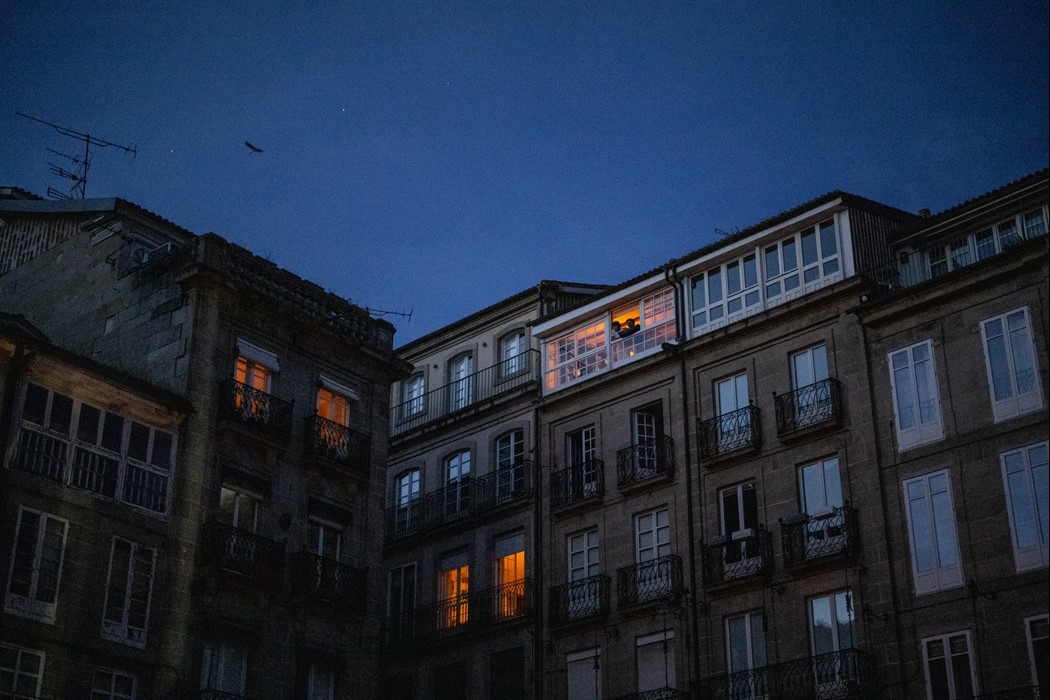Why Spain’s Rooftop Solar Owners Weren’t Spared From the Blackout
May 03, 2025 by Bloomberg(Bloomberg) --
When the electricity suddenly went out in Spain on Monday, Irene Casas and her husband Luis Morate, who live in an apartment building in a Madrid suburb, lost power along with everyone else. That’s despite the fact that they, along with their neighbors, own a source of electricity: 200 rooftop solar panels installed at the end of 2023.
The panels didn’t help them ride out the blackout because they are connected directly to the grid. Each co-owner, including Casas and Morate and their neighbors, gets a discount on their utility bill in exchange for the power they put into the electricity network, but the panels themselves don’t directly supply their apartments with energy.
Casas and Morate’s experience goes against what many people would consider conventional wisdom: Solar on your roof provides energy independence. Yet, that’s not always the case. “On principle, solar panels give us power during the day, but in reality we are connected to the grid like everyone else,” said Morate.
The predicament may have come as a surprise to some of the thousands of Spanish households who now have rooftop solar. The number of installations on homes surged after 2018 when a tax on using energy from panels was canceled. Since then, residential solar capacity has shot up from 300 megawatts to 2,400 megawatts by the end of 2023, according to BloombergNEF data.

In most cases Spain’s rooftop solar is connected directly to the grid. Doing it any other way is complicated. To wit: A 181-page government guide details a 17-point pathway for homeowners who want to become energy self-sufficient.
All of this isn’t unique to Spain. Most solar installations in Europe, even those with batteries, are not equipped with so-called islanding capabilities, which enable them to operate when the grid is down. Instead, the inverter — the device which acts as the brain of the solar system — turns it off the system when the grid is not available. That’s for safety reasons and to allow engineers to work on the grid without encountering live wires.
It costs more to set up solar panels so they can quickly switch off the grid. Therefore many people living in places with rare blackouts and a reliable electricity supply may decide it doesn’t represent a good return on the cost, says Adam Bell, director of policy at the consultancy Stonehaven.
“In places where your chances of losing load are very low, like most of Europe and the developed world, then it’s just an extra expense you almost certainly don't need,” he says.
For some residents in rural areas of Spain, going through the trouble of having off-grid energy supply was worth it.
Carlota Sala, who lives on a century-old farm in Spain’s northeastern region of Catalonia, didn’t even realize the Iberian Peninsula was in the middle of a historical blackout until many hours into the outage. Sala, a 45-year-old mother of five who is a well-known speaker on maternity and childhood issues under the nickname Ninyacolorita, lives entirely off-grid, with solar panels and batteries that store power so the family can use it during the night as well.
“We heard about [the blackout] when a message from a friend came through, many hours after she sent it,” Sala said. “We went into the internet to look it up and my teenage sons couldn’t believe everyone was offline.”
When Sala’s family moved away from Barcelona, Spain’s second-largest city, over a decade ago, they felt the urban lifestyle was hostile and were looking to reconnect with nature.
The power outage this week has only reinforced her family’s choice to be energy independent, she said.
“Being self-sufficient in your daily life gives you a sense of physical and emotional autonomy,” Sala said. “It impacts your self-esteem, it puts you in a powerful position where you feel you can make your own choices.”
©2025 Bloomberg L.P.
By


















